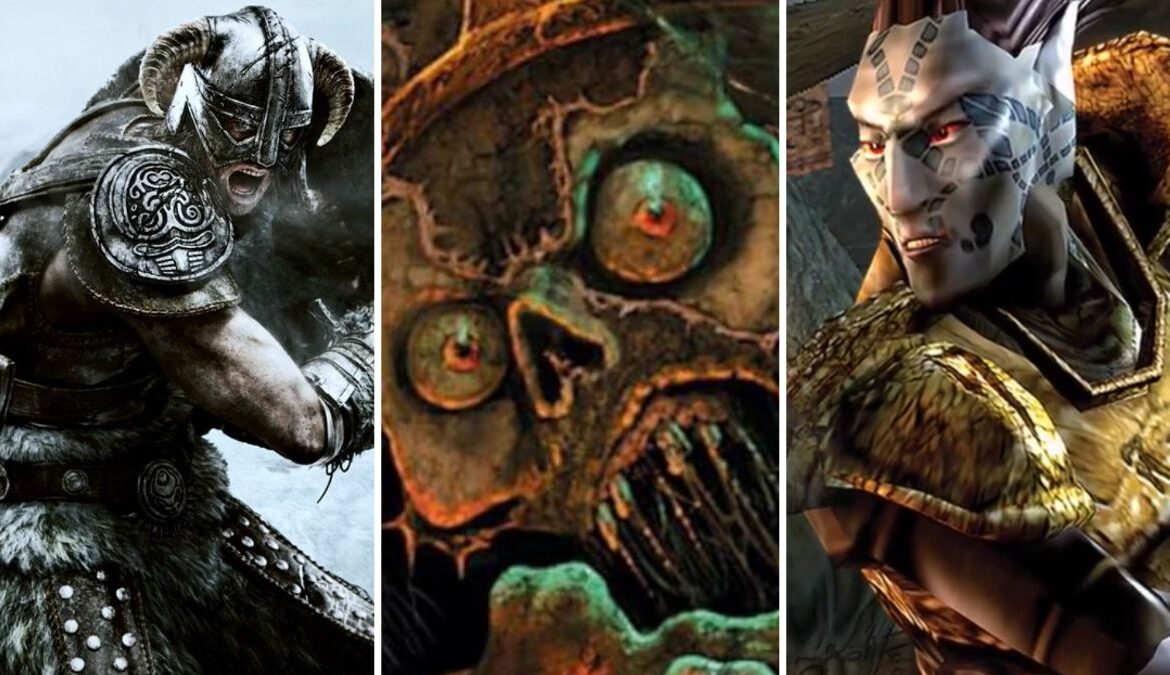The Elder Scrolls is a name as old as the PlayStation 1. Created by Bethesda Softworks, The Elder Scrolls is hailed as one of the most groundbreaking RPG franchises. Arena in 1994, Morrowind in 2002, and Skyrim in 2011 are just three installments from this long lineage, and all of them revolutionized the RPG genre in more ways than one, including but not limited to: top-tier quest design, deep lore, iconic memes, and the ability to seduce and marry vampires, werewolves, or orcs.
There’s something for everyone when it comes to The Elder Scrolls and that’ll be plain obvious to you if you’ve played even one of the 15. On the off chance you haven’t or if you’re just curious why the series is so popular, you’re in luck as we are ranking every Elder Scrolls game from worst to best. We’ll be listing the fantastic and mundane parts of each, as well as giving you a handful of reasons why you should consider trying them out.
15. The Elder Scrolls Travels: Oblivion
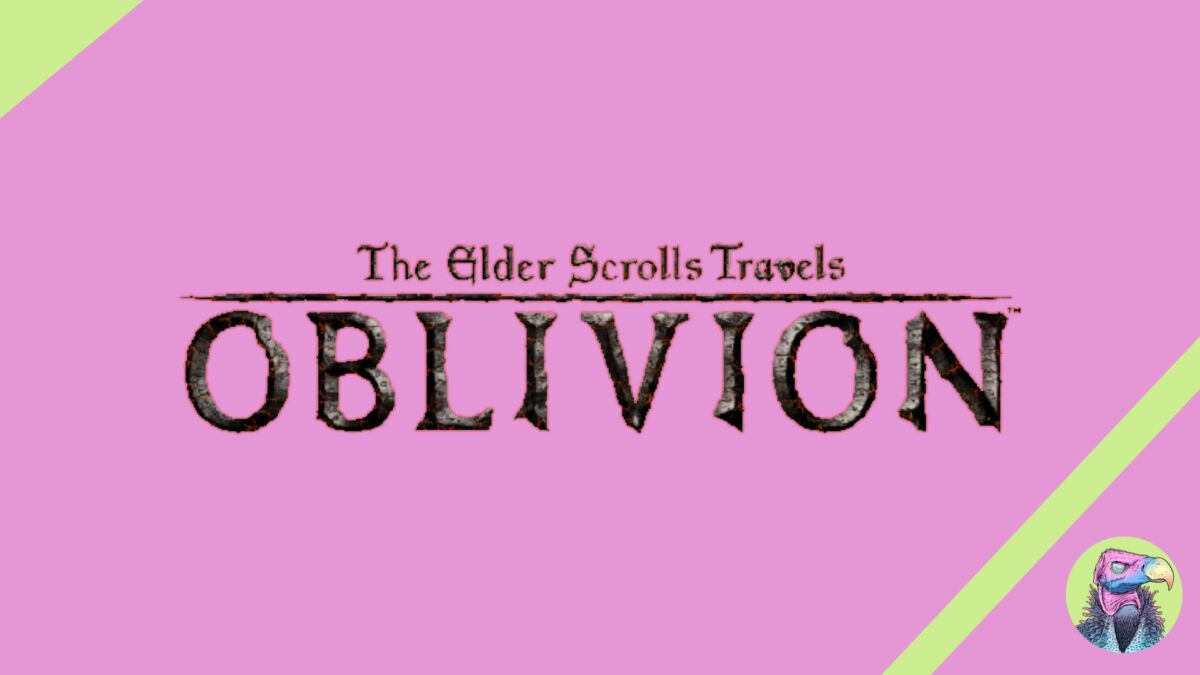
| Game | Developer | Release Date | Platform(s) |
|---|---|---|---|
| Travels Oblivion | Vir2L Studios | May 2, 2006 | Mobile |
If you remember playing The Elder Scrolls Travels: Oblivion back in the day, either you’re lying to yourself or have a crappy memory because it was never released. Out of the blue, the good old boys at Bethesda announced that a spin-off of Oblivion called The Elder Scrolls Travels: Oblivion would be soon coming to the PSP and mobile. While the retro-style short mobile game was released and went by under the radar, the AAA PSP version hasn’t come out yet. Don’t worry, guys, it’s only been 17 years, they’re probably polishing it as we speak.
What actually happened was that development was so hectic on Travels: Oblivion that the project was ultimately canned, leaving the game seemingly canceled and many fans disappointed. It’s a shame because the premise of the Oblivion Crisis taking place in High Rock as opposed to the real Oblivion’s Cyrodiil was fascinating, to say the least.
Funnily, enough, a playable build of The Elder Scrolls Travels: Oblivion surfaced online in 2016. Bethesda’s parent company ZeniMax was quick to take it down but you know the Elder Scrolls fans, they had already made backups of their backups. You might be able to find the build if you search hard enough, but fair warning, it’s quite lackluster, barely playable, and will take you less time to finish than you spend finding it.
14. The Elder Scrolls Travels: Stormhold

| Game | Developer | Release Date | Platform(s) |
|---|---|---|---|
| Stormhold | Vir2L Studios | August 1, 2003 | Mobile |
The Elder Scrolls Travels: Stormhold is the Elder Scrolls version of the hit TV series Prison Break (well, obviously not literally). It was also the first game that brought the Elder Scrolls to mobile.
Set in the backdrop of a prison in Stormhold, players had to escape the crutches of an evil warden and fight monsters while making uncanny alliances along the way.
Travels: Stormhold is linear, unlike the mainline Scrolls games. It’s clunky, and everything about it is what an Elder Scrolls game shouldn’t be, so ranking it this far back in the list of all Elder Scrolls games wasn’t a tough decision, especially when actually playing it in 2024 is more hassle than travelling to Stormhold itself.
13. The Elder Scrolls Travels: Dawnstar
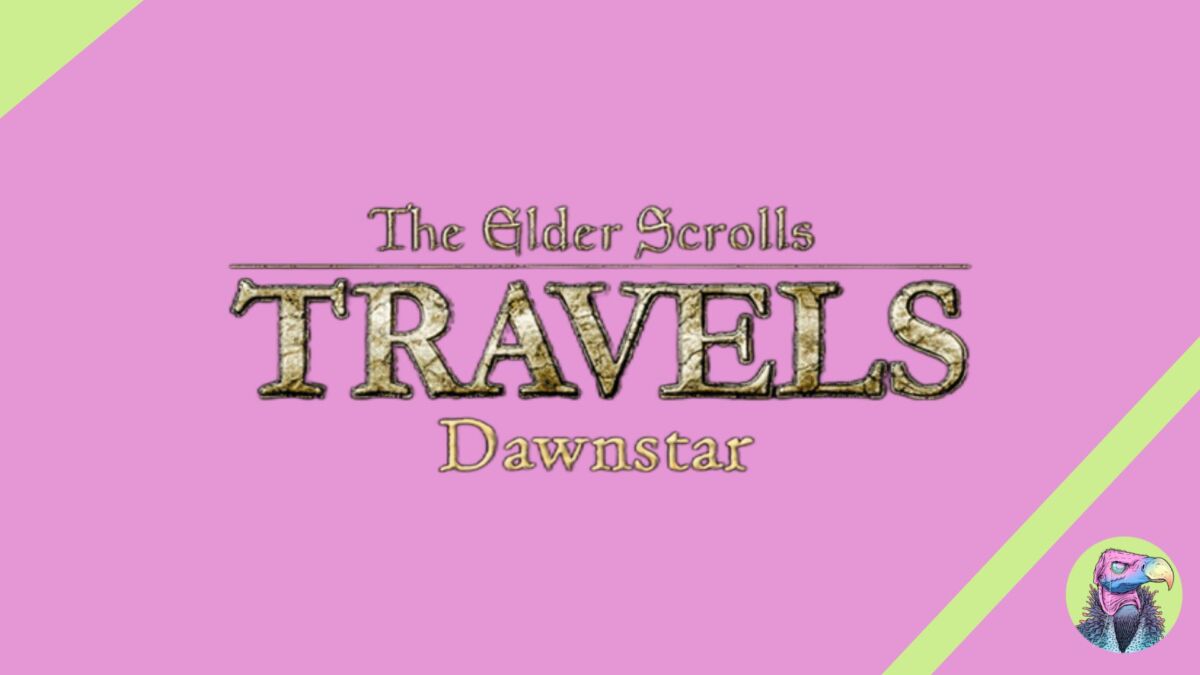
| Game | Developer | Release Date | Platform(s) |
|---|---|---|---|
| The Elder Scrolls Travels: Dawnstar | Vir2L Studios | August 26, 2004 | Mobile |
Yes, Dawnstar is another mobile game, yes, it’s bad, and yes, we wouldn’t recommend you play it unless you’re a superfan.
Dawnstar is made in the same vein as Stormhold. It’s a one-to-one copy with the same HUD, dungeon-crawling combat, and clumsy game design, albeit the story you get here is different.
Instead of Prison Break, you’re playing Knives Out as you need to ferret out the traitor from among the four champions of Dawnstar. It’s a linear experience, and there isn’t much to see here. Maybe just do a quick Google search and solve the whodunit before going to bed.
12. The Elder Scrolls: Blades
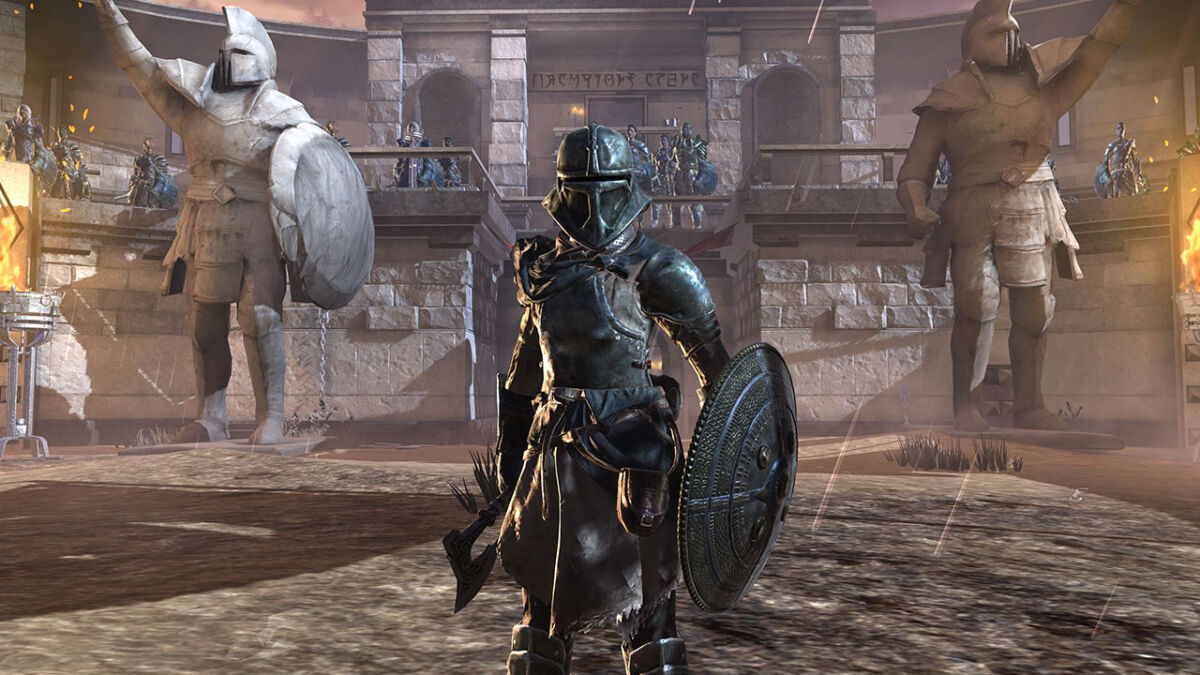
| Game | Developer | Release Date | Platform(s) |
|---|---|---|---|
| The Elder Scrolls Blades | Bethesda Game Studios | May 12, 2020 | Mobile, Switch |
Set between the events of Elder Scrolls 4 and 5, Blades is a freemium mobile game Bethesda released in 2020 and yes, it’s canon.
As a member of the exiled group of legendary spies, the Blades, you’re hiding in your hometown from mercenaries. But certain events transpire and the grumpy undead Sorcerer King gets unsealed and destroys the town.
Now it’s your job to rebuild it. Whether that’s by killing everyone you see or saving the villagers, that’s totally up to you. The Elder Scrolls: Blades has a fun premise, but is it actually? Well, it depends.
When it comes to the story, perhaps, but in terms of gameplay, not unless you consider forced one-on-one battles entertaining. You’ll never fight more than one enemy at a time, and the graphics are worse than Skyrim, which came out in 2011. Granted, that was a console and PCgame, but if you look at the likes of Genshin Impact or The Batman Telltale series running on mobile, Blades falls short by miles.
Since 2020, Blades has changed for the better with the help of regular updates, but it’s still a lackluster experience and one that no-one will look back at fondly.
11. The Elder Scrolls Travels: Shadowkey

| Game | Developer | Release Date | Platform(s) |
|---|---|---|---|
| The Elder Scrolls Travels: Shadowkey | Vir2L Studios, TKO Software | November 9, 2004 | N-Gage |
The final Travels game in this list is Shadowkey, and it’s also by far the best. Unlike its peers, Shadowkey actually doesn’t look or play half-baked. The gameplay is as if it were plucked out of Doom 64: fast-paced, snappy, and very moment-to-moment.
Shadowkey has plenty of locations that are revisited in The Elder Scrolls Online, and while it is lore-rich and canon to the series, we haven’t yet seen anything from it being heavily referenced in the main entries, though fans online do seem to think Shadowkey could play a minor beat in The Elder Scrolls 6.
Everything else aside, Shadowkey holds up remarkably well, and it’s the only one from the Elder Scrolls Travels series we recommend you play. It’s also on the N-Gage. That’s got to be worth something.
10. An Elder Scrolls Legend: Battlespire

| Game | Developer | Release Date | Platform(s) |
|---|---|---|---|
| An Elder Scrolls Legend: Battlespire | Bethesda Softworks | December 2, 1997 | MS-DOS, PC |
Battlespire, which Bethesda released in 1997, was their first-ever multiplayer Elder Scrolls game. Like Arena and Daggerfall before it, Battlespire was an action RPG, but was linear and had more emphasis on the action part as the entire time it had you dungeon crawling, fighting enemies, and looting them for resources.
With no backtracking, interesting NPCs, questlines, or a vast open world to discover stories in, Battlespire neither had the “it” factor nor the feeling of wonderment The Elder Scrolls is loved for.
However, the multiplayer mode, intricate dungeon designs, and the constant combat with enemies did offer some fun, so while Battlespire isn’t as popular as the mainline games, it has its strengths and is worth checking out even today.
9. The Elder Scrolls Adventures: Redguard

| Game | Developer | Release Date | Platform(s) |
|---|---|---|---|
| The Elder Scrolls Adventures: Redguard | Bethesda Softworks | November 16, 1998[ | MS-DOS, PC |
We bet “RPG” is the first thing that pops into your head when someone asks you to describe The Elder Scrolls, but believe it or not, not every Elder Scrolls game is an RPG.
1998’s The Elder Scrolls Adventures: Redguard is the only action-adventure game in the series, and while it’s a massive departure from everything Elder Scrolls is known for, Redguard’s trade-offs work surprisingly well.
The action gameplay for one was satisfying at the time since smacking enemies relentlessly wasn’t yet generic. Redguard is not quite as big as 96’s Daggerfall or 94’s Arena, but it does a lot of things right.
For instance, while the introduction of a fixed protagonist removes all the customization options Elder Scrolls is known for, it’s a nice change of pace getting to play as someone with a backstory. Redguard is not the best when it comes to content and story either, and it’s definitely not an RPG by any means, but it’s still an action-adventure game fans who want to wander Tamriel will cherish.
8. The Elder Scrolls: Legends
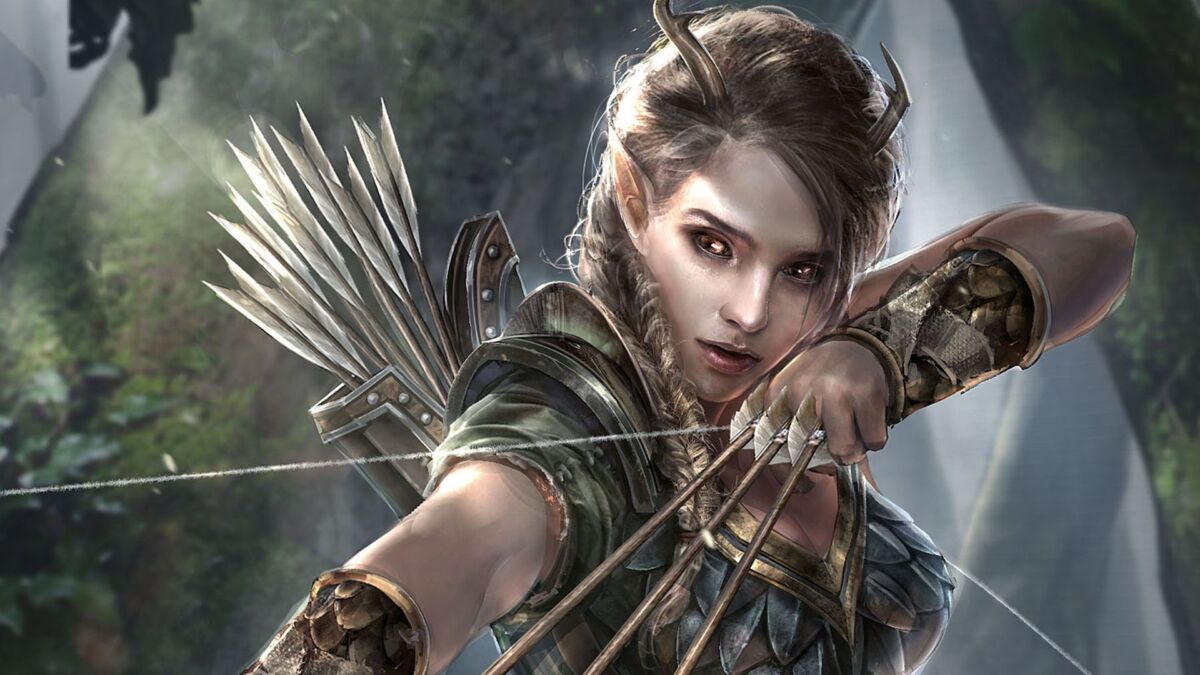
| Game | Developer | Release Date | Platform(s) |
|---|---|---|---|
| The Elder Scrolls Adventures: Redguard | Dire Wolf Digital | March 9, 2017 | PC, Mobile |
You might not know this, but there’s an Elder Scrolls card game called The Elder Scrolls: Legends. That doesn’t imply it’s a bad game by any means. On the contrary, Legends is considered to be one of the better card game spin-offs out there.
Legends card mechanics are its highlight. Throughout the game you’re building a deck of cards that have attributes, but gameplay is more than just using the right attribute at the right time. You are constantly developing a strategy as opponents can easily destroy your strongest cards because of the Two Lane mechanic, a feature that allows specific cards to not be attacked for one turn.
Anyone who is into CCGs (collectible card games) will know the tactical importance of such moves. Again, The Elder Scrolls: Legends is a really strong CCG but since this isn’t what The Elder Scrolls series is known for, many people don’t know about Legends all that well.
Development on Legends was stopped in 2019, though you can still play it today. Apart from the usual stuff you’d expect from a card game, there isn’t much to look at here in terms of innovation, so maybe try it if you’re a superfan, otherwise reading up on it should more than suffice.
7. The Elder Scrolls I: Arena

| Game | Developer | Release Date | Platform(s) |
|---|---|---|---|
| The Elder Scrolls: Arena | Bethesda Softworks | March 9, 2017 | PC, Mobile |
Arena’s the one that started it all. It’s the first Elder Scrolls game and no matter how bad or outdated its design and graphics might be 30 years later, Arena became the foundation for gaming’s most lore-heavy franchise.
The Elder Scrolls I: Arena took place over the entire continent of Tamriel. Its scope was so huge for its time that developers thought it couldn’t ever be made, but Bethesda’s ingenuity in choosing to use procedural generation to create the open-world surprisingly worked, and Arena was the by-product of their efforts.
Fun Fact: Bethesda claims to this day that Arena’s Map is over 9 million kilometers. That’s difficult to prove otherwise given Arena’s map is almost entirely procedurally generated, but we doubt Todd would be lying to us.
Now it’s unfair to judge Arena based on today’s standards. There are plenty of things wrong with it: it’s bare bones, has almost no lore apart from the main story, and its controls are frustrating, to say the least, but in 1994, Arena was the pinnacle of RPGs, so personally I’d say it’s a great game.
6. The Elder Scrolls V: Skyrim VR
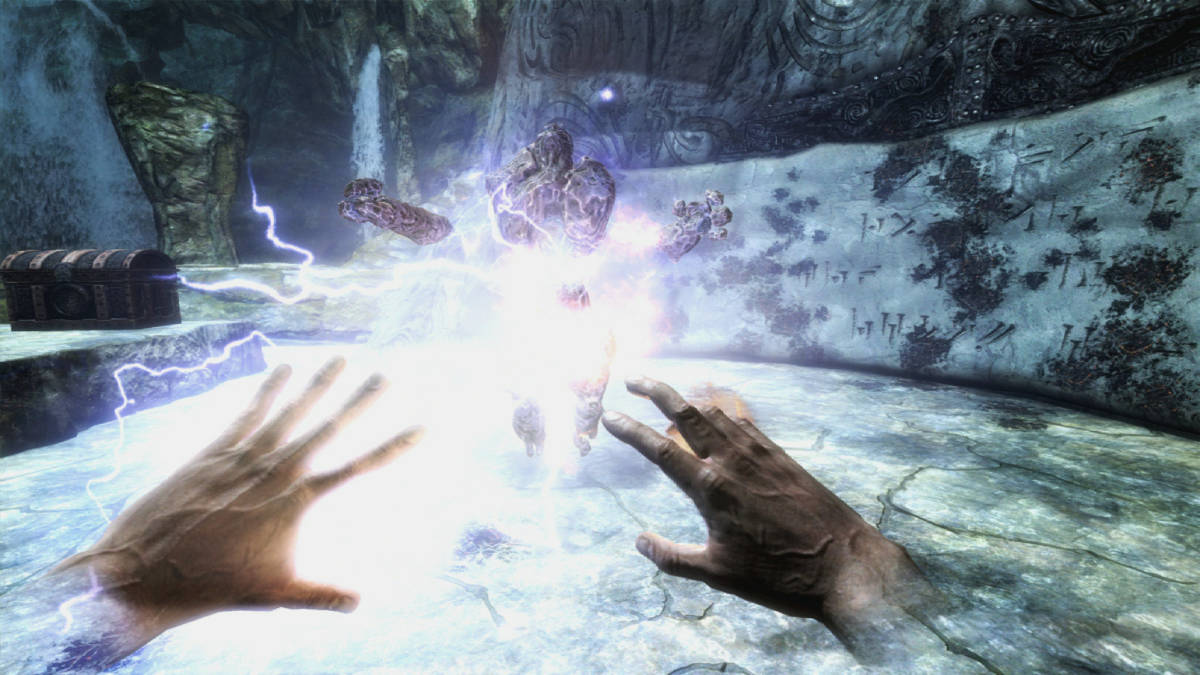
| Game | Developer | Release Date | Platform(s) |
|---|---|---|---|
| The Elder Scrolls V: Skyrim VR | Bethesda Game Studios | April 3, 2018 | PC, PS4 |
And sixth place goes to Skyrim – but in VR. There’s not a lot you can say here if we’re being honest. Few asked for it, but Bethesda couldn’t help but milk Skyrim one more time.
The Elder Scrolls V: Skyrim VR is everything Skyrim is, but, again, in VR. It has the same questlines, cities, NPCs, and everything else you can find in vanilla Skyrim, albeit according to everyone who has played it, somehow things look uglier than they were 6 years ago in vanilla Skyrim.
It has its flaws when it comes to porting and it does look ugly, that’s for sure, however, if you’re willing to invest a couple of hours installing visual mods, Skyrim VR will indeed fulfill that fantasy you had of living in Skyrim.
Other than that, Skyrim was already amazing to begin with and you can’t really bash a VR version of a game that’s already that good. If you’re willing to look past its flaws and spend time modding, the change in perspectives does return that feeling of bewilderment to someone who has already played the hell out of Skyrim.
To put simply, Skyrim VR is innovative in that it brings one of the best RPGs of all time to VR. However, since it adds nothing more to the original except for a resfreshed perspective, it does leave you wanting more.
5. The Elder Scrolls Online

| Game | Developer | Release Date | Platform(s) |
|---|---|---|---|
| The Elder Scrolls Online | ZeniMax Online Studios | April 4, 2014 | PC, PS4, PS5, Xbox Series, Xbox One |
It was only a matter of time until the franchise went full live service MMORPG. The Elder Scrolls Online was Bethesda’s stab at the live service money and it paid off, at first. Combat was good, multiplayer worked well, and quests felt truly infinite, unlike Todd’s promises with Skyrim.
But it was only a matter of time before things went downhill and then they did. Every new content update was behind a $15 paywall. One or two you get, but thousands of cosmetic items and quests, it’s just bonkers how badly Bethesda wanted to rob you.
Elder Scrolls Online is absolutely not for everyone, especially for those who despise a million microtransactions. That said, it is fun to play with your friends and ESO is probably the most lore-rich Elder Scrolls game out there because of its frequent updates. It’s a mixed bag overall, and one not every Elder Scrolls fan will love.
4. The Elder Scrolls II: Daggerfall

| Game | Developer | Release Date | Platform(s) |
|---|---|---|---|
| The Elder Scrolls II: Daggerfall | Bethesda Softworks, MediaTech West | September 20, 1996 | PC, MS-DOS |
After the success of Arena in 1994, Bethesda was quick to follow it up with The Elder Scrolls II: Daggerfall. With better combat, more customization options, and quests, Bethesda upped Daggerfall in all that it could.
Now you could buy houses, and ships, and defend yourself in court. Daggerfall presented a level of realism the RPG genre was previously devoid of. It’s also the game where much of The Elder Scrolls lore was essentially set in stone since Bethesda wasn’t sure whether they’d continue the series after Arena.
Though not everything was bigger. The map was only 161,600 Kilometers instead of 9 Million in Arena. That’s the size of the UK! But still, talk about a downgrade.
Daggerfall’s primitive when compared to later Elder Scrolls titles, let alone today’s games, but it’s the game that set the precedent for the franchise and is hands down one of the best Elder Scrolls has offered.
3. The Elder Scrolls III: Morrowind
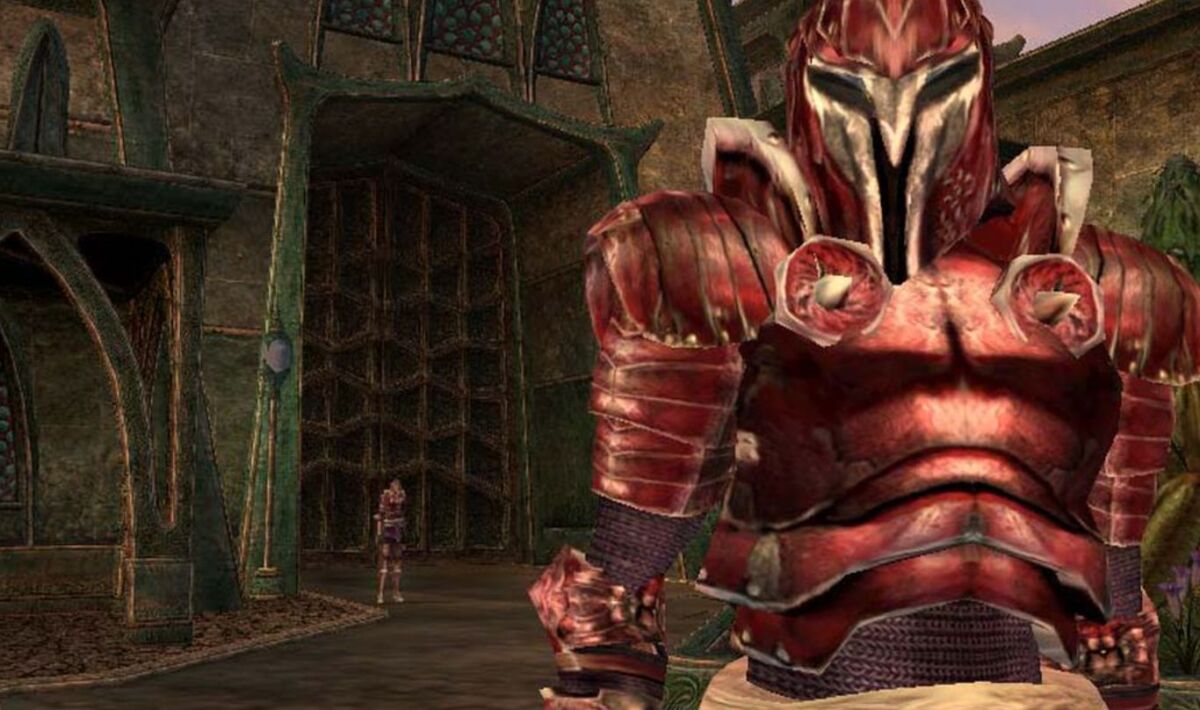
| Game | Developer | Release Date | Platform(s) |
|---|---|---|---|
| The Elder Scrolls III: Morrowind | Bethesda Game Studios | May 1, 2002 | PC, Xbox |
The Elder Scrolls III: Morrowind was Todd Howard’s first mainline Elder Scrolls as game director, and it’s a large part of the reason he still has so much goodwill now.
Morrowind was visionary when it came to quest design and side quests specifically. The land of Morrowind was distinct, every part of it had a story to tell. There were no quest markers or hand-holding at all. You had to pay attention to what the NPCs said and if you didn’t, you might end up stuck on one quest for hours.
Procedural generation was taken down a notch and while Morrowind was smaller in size, it had tenfold more hand-crafted content than Daggerfall. But more than that, the reason why Morrowind is so iconic and among the best Elder Scrolls games is that it was the first true immersive RPG of its time. Want to run faster? Drink 50-speed potions at once and move across the map in an instant. Don’t want to get caught while stealing? Use Telekinesis and lock pick from 50 feet away or maybe you’d rather cook a spell that kills all NPCs in an entire town. Yeah, Morrowind has that all.
In 2002, no other game gave you that, and though that was long ago, Morrowind definitely had a huge impact on the genre because of these features. Like there wasn’t any other game that let you craft custom spells and potions and make them stack effects yet still work so in harmony with each other that they don’t end up breaking the game.
Morrowind was spectacular, and it inarguably was a pioneer of its time.
2. The Elder Scrolls IV: Oblivion

| Game | Developer | Release Date | Platform(s) |
|---|---|---|---|
| The Elder Scrolls IV: Oblivion | Bethesda Game Studios | March 20, 2006 | PC, Xbox 360, PS3 |
The Elder Scrolls IV: Oblivion was another high point for The Elder Scrolls. For the first time ever, NPCs were fully voiced and oh my is that something to witness.
For some reason, Oblivion feels more alive than the other Elder Scrolls games. Skyrim is undoubtedly more stuffed, but something about Oblivion screams fantasy RPG louder than the rest. Maybe it’s the vibrant color palette, the near-endless stream of quests, or the Adoring Fan that follows you around everywhere. Not to mention the better game design, combat, and other bits and pieces Oblivion improved upon of Morrowind.
Oblivion certainly has the best tone out of the series, and because it builds on its predecessors while taking away little to nothing, it’s easily the second-best Elder Scrolls game Bethesda has offered us.
1. The Elder Scrolls V: Skyrim
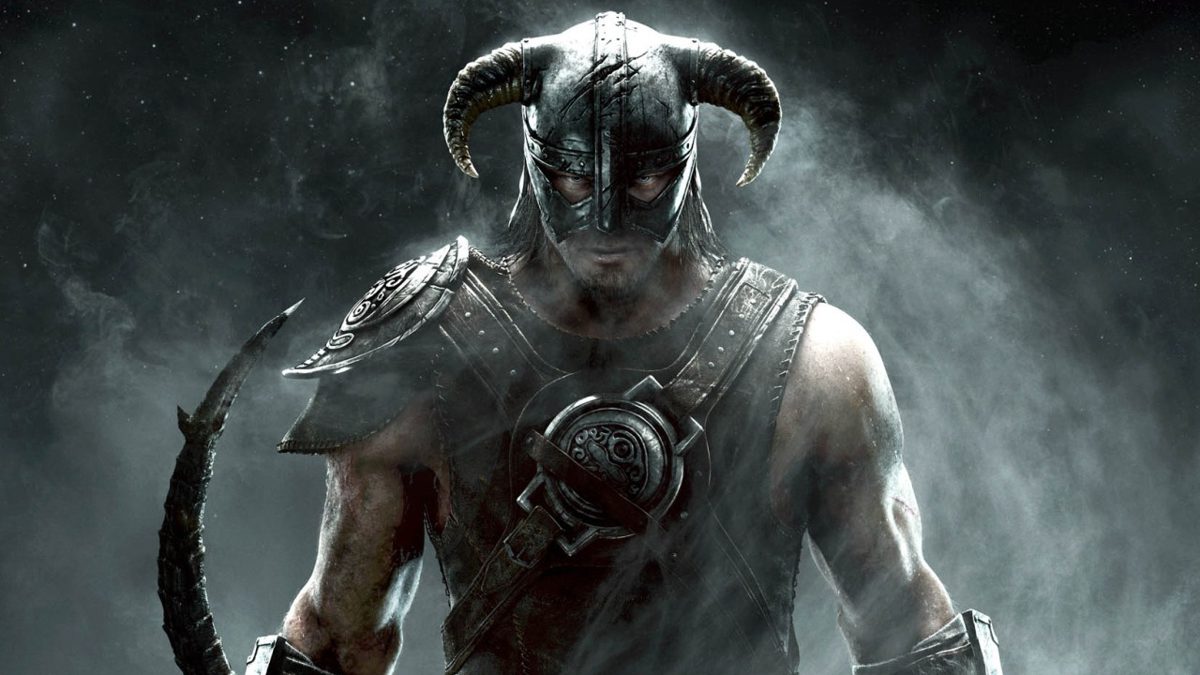
| Game | Developer | Release Date | Platform(s) |
|---|---|---|---|
| The Elder Scrolls V: Skyrim | Bethesda Game Studios | November 11, 2011 | PC, PS3, PS4, PS5, Xbox 360, Xbox One, Xbox Series, Switch |
Skyrim is the title most Elder Scrolls fans will be accustomed to since it’s the latest installment in the mainline series, with latest here referring to 2011. Skyrim is also the best-selling Scrolls game with over 60 million copies sold, and that’s a good indicator of how amazing it truly is.
Skyrim was fine wine when it was first released, and it has aged even better. Buy houses, marry people, become a vampire, or a werewolf, kill dragons, ride them, and take part in a civil war. Skyrim had it all and it is without question the best Elder Scrolls game content-wise. The lore, quests and atmosphere might be better in Morrowind or Oblivion for some, but one thing every Elder Scrolls fan agrees on is that Skyrim does more and does it well.
Everything you could want in an Elder Scrolls game, Skyrim has it, and what it doesn’t, is later added by its devoted modding community. And that essentially gives Skyrim infinite replayability.
Be that as it may, the credit still goes to Bethesda for creating a game rich in all realms from a narrative brimming in its world to hour-long quests that take you from one end of the map to the other.
Running into an entire guild of thieves beneath Riften’s sewers after you only hear a single dialog line hinting at the possibility of so, or you climbing the literal 7,000 steps to reach The Throat of the World in search of answers about your destiny are designs that simply can’t be replicated by any other developer.
And the fact that Bethesda created all this in a way that allows for insanely detailed modding is a treat in and of itself. Skyrim’s a legendary RPG and we’re sure even after The Elder Scrolls VI comes out, many will still be playing it.
READ NEXT: Ranking Every Spider-Man Game From Worst To Best
Some of the coverage you find on Cultured Vultures contains affiliate links, which provide us with small commissions based on purchases made from visiting our site.
